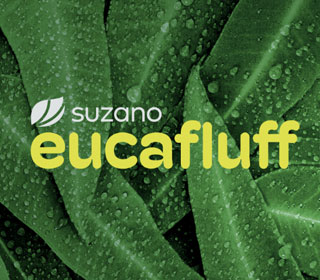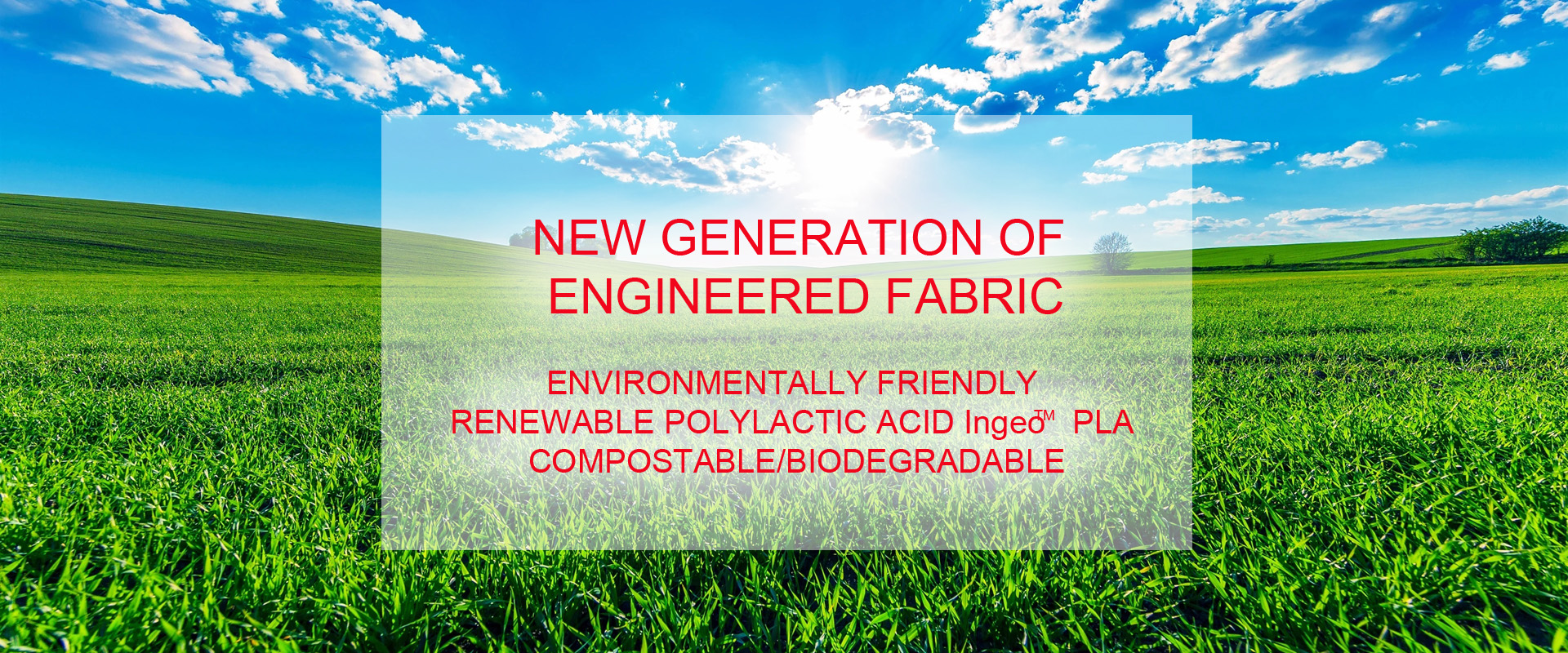
Suzano
Suzano is actively contributing to the creation of a low-carbon economy with its Eucafluff® and has committed to removing 40 million tonnes of carbon from the atmosphere by 2025.

U.S. Pacific is committed to reducing CO 2 emissions and protecting the planet’s resources. We produce bio-based roll goods with our new production line, 2.4 meters wide, which is proprietarily-designed exclusively to manufacture spunbond nonwovens. Our spunbond nonwovens are made from bio-based polymers: Polylactic Acid (PLA) / Polybutylene Succinates (PBS) / Polyhydroxyalkanoate (PHA) or blended PLA/PBS, PLA/PHA. These bio-based polymers improve our materials’ physical properties and widen the market applications. Weights range from 17 to 150 gsm with an annual capacity of 3,000 metric tons.
In addition to minimizing the environmental effects, PLA also provides a tremendous benefit for protective apparel and single use products that have direct skin contact. PLA offers a selection of superior properties, naturally, without adding chemical additives or treatments of any kind. Its unique sub-acid characteristics are close to the pH value of human skin. PLA is hypoallergenic and bacteriostatic and provides odor suppression, mite suppression, excellent moisture evaporation, high UV light resistance and a flame-retardant effect.
In considering the European Single-Use Plastic Directive, PLASB (Polylactic Acid Spunbond) can replace PP, PET & PE, is eco-friendly and can be converted into a number of medical consumables and wearables. Examples include hospital beddings, personal hygiene products and wipes. Wipes, in particular, can have excellent absorbancy which is achieved by blending PLASB with wood pulp or another highly absorbent natural fiber.
PLA also outperforms PP & PET in UV protection. Because of this distinctive feature, it is widely used to replace PP or PET for farming applications such as crop mulch and fruit packaging. Instead of planting the seeds manually one by one, the seeds can be pre-planted onto the PLASB rolls and then unwound on the fields with agricultural vehicles to increase the harvest and yield. This process will save farmers a great deal of time and effort. Instead of removing the PP debris from the field, PLA nonwovens buried in the soil over time become compostable and can act as a fertilizer. Fields mixed with unremoved PP or PET debris will damage the soil quality and affect the harvest. Fruit packaging also benefits from PLA’s excellent moisture evaporation property by being highly breathable and staying dry to minimize the chances of the fruit from rotting from mildew and insects.
Our PLA nonwovens are compostable and biodegradable. Protect the world and ourselves by using more environmentally-conscious products. Contact us for more information.